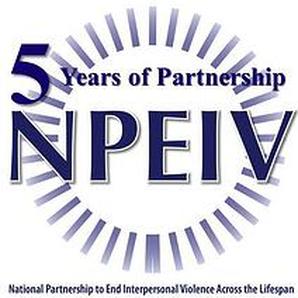|
By Jacquelyn White, Robert Geffner, Dorothy Espelage, Co-chairs of the National Partnership to End Interpersonal Violence, See the Triumph Guest Bloggers
The problems of interpersonal violence, especially child maltreatment and children exposed to violence, have not been substantially reduced in the past three decades. According to a variety of recent research studies by the Centers for Disease Control and Prevention (CDC) and other federal agencies, intimate partner violence, sexual assault, children exposed to violence, and child maltreatment are still at epidemic rates (e.g., nearly 1 million children were victims of child abuse and neglect in 2004 - CDC report in 2005; over 7 million intimate partner violence (IPV) physical assaults and incidents occur annually that many children have been exposed to – Department of Justice (DOJ) study in 2000; over 1,500 IPV related deaths occurred in 2004 - DOJ Study in 2005; 8% of high school students were forced to have sex in 2004 - CDC report in 2005). Clearly, new ways of conceptualizing and dealing with these issues are needed to provide better solutions for prevention and intervention to create and implement a national strategy to reduce and prevent all types of interpersonal violence. One major obstacle to achieving a reduction in such violence is a gap that exists among researchers, practitioners, policy makers, and consumers of services (e.g., adult survivors of child or adult victimization) in the approaches and techniques promoted and used to prevent and deal with such cases. There has not been sufficient integration of research, practice, advocacy, and policy, and those in different disciplines focus on their own agendas and perspectives. In general, although there is increasing effort among researchers, practitioners, advocates, and policy makers to interact with each other and improve dissemination to the consumers of such services, research findings concerning best practices are often not applied to intervention by those on the front lines dealing with victims or offenders of violence and abuse. Additionally, many challenges still confront researchers interested in studying the problems faced most often by practitioners or consumers. For example, adverse childhood experiences (ACEs) are recognized and understood as possible precursors to later violence and abuse. The effects of IPV on the adult victims and the children exposed have been linked to numerous adverse physical health issues throughout the lifespan (Anda et al., 2006; Felitti et al., 1998; Groves, Augustyn, Lee, & Sawires, 2002). However, many on the frontline may not have this knowledge or have not sufficiently utilized trauma-informed services to work with their clients. Until recently there has not been a mechanism that facilitates integrative and collaborative communication and research, practice and policy across diverse domains of interests and populations. To address this need, the National Partnership to End Interpersonal Violence across the Lifespan (NPEIV) was created in 2008, with the commitment to bring all factions together to network, learn from each other, and to apply the best practices. Everyone involved in the partnership shares a commitment to social justice and diversity issues in order to reduce interpersonal violence and abuse in the family and in the community. A key assumption is that many social and public health problems begin with the abuse of children. NPEIV is an overarching network of state, regional, and national interdisciplinary, multicultural organizations, agencies, coalitions and individuals. The NPEIV
Mission:
Vision:
Guiding Principles
To learn more about NPEIV, please visit http://www.npeiv.org/. Comments are closed.
|
Archives
July 2024
CategoriesAll About Intimate Partner Violence About Intimate Partner Violence Advocacy Ambassadors Children Churches College Campuses Cultural Issues Domestic Violence Awareness Month Financial Recovery How To Help A Friend Human Rights Human-rights Immigrants International Media Overcoming Past Abuse Overcoming-past-abuse Parenting Prevention Resources For Survivors Safe Relationships Following Abuse Schools Selfcare Self-care Sexual Assault Sexuality Social Justice Social-justice Stigma Supporting Survivors Survivor Quotes Survivor-quotes Survivor Stories Teen Dating Violence Trafficking Transformative-approaches |
Search by typing & pressing enter



 RSS Feed
RSS Feed